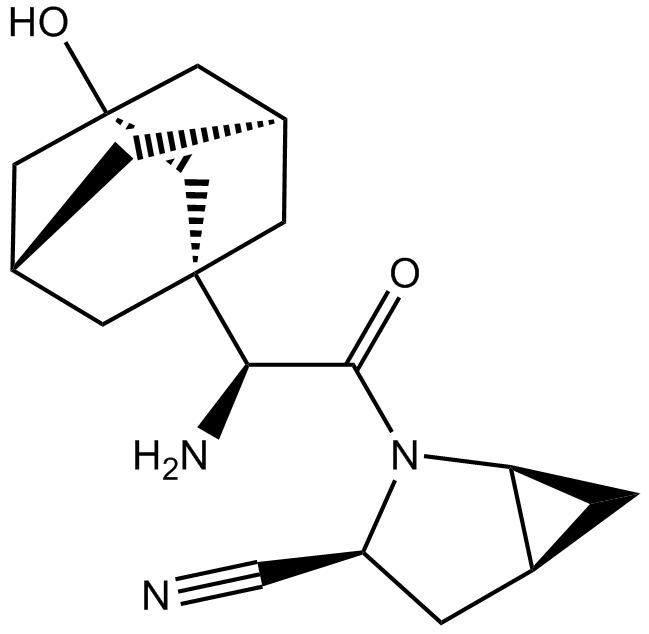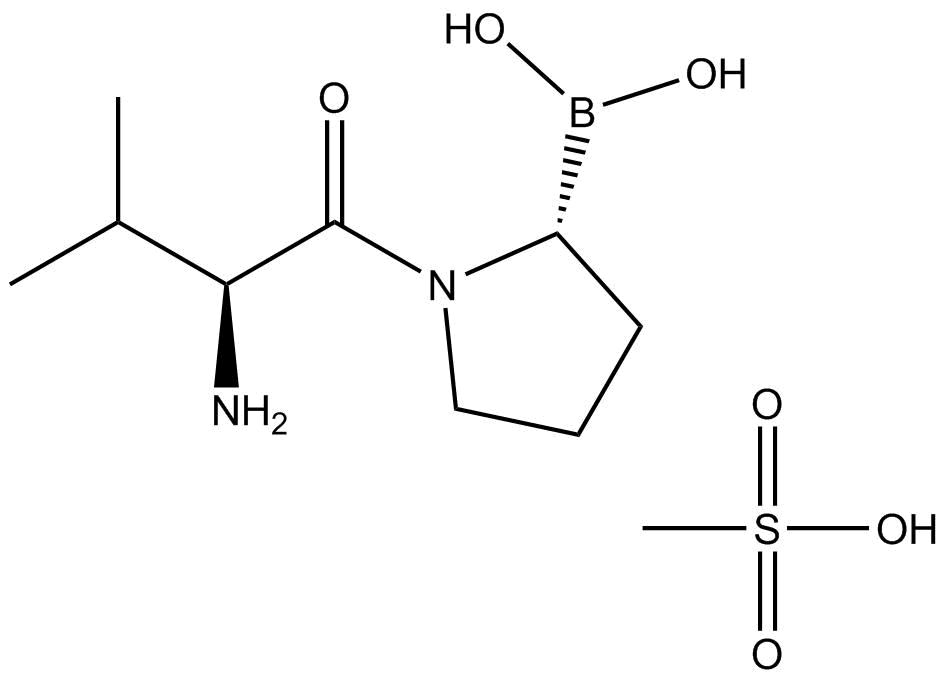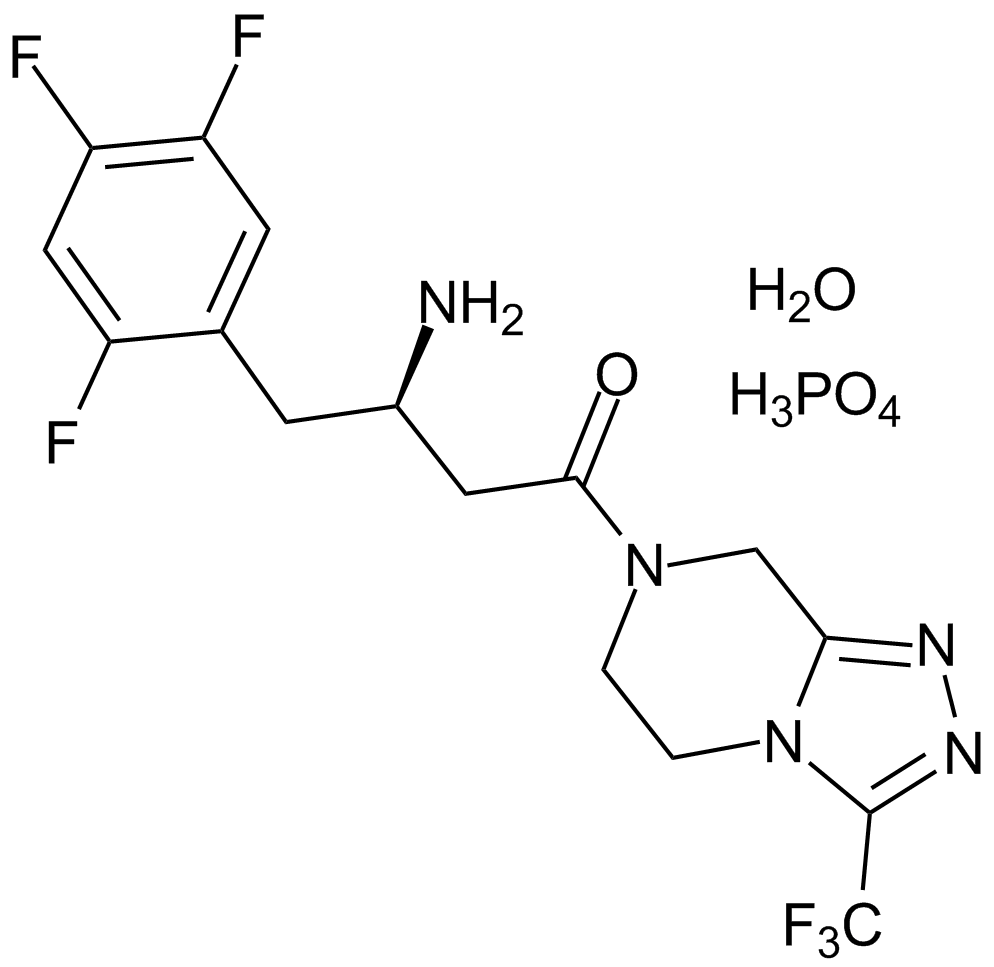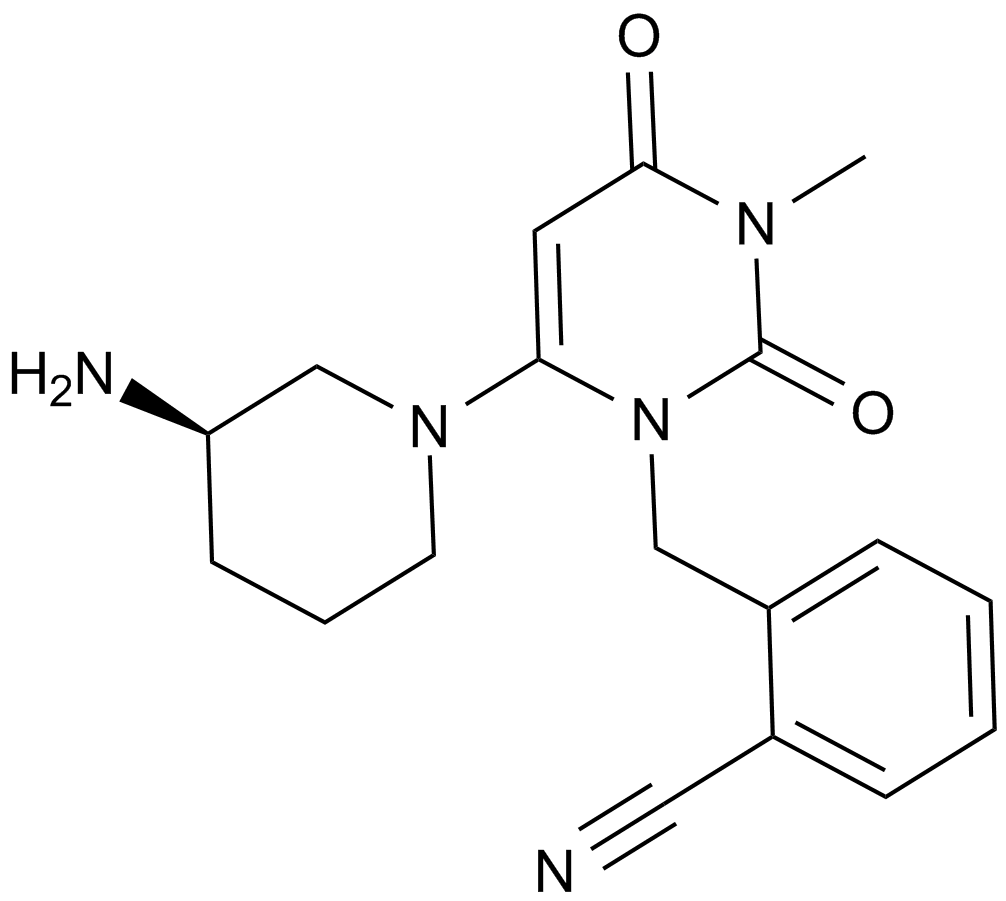Proteases
Proteases, also known as peptidases or proteolytic enzymes, consists of a large number of enzymes catalyzing the hydrolysis of peptide bonds and subsequently resulting in the degradation of protein substrates into amino acids. Proteases are involved in a wide range of human diseases, including cancer, neurodegenerative disorders, inflammatory diseases and cardiovascular diseases. Thus numerous proteases inhibitors (small molecules and proteins) have been identified to block activity of proteases. Proteases inhibitors can be classified into different types based on the class of proteases they inhibit through two general mechanisms, irreversible “trapping” reactions and reversible tight-binding reactions. Proteases inhibitors have been used as diagnostic or therapeutic agents for the treatment of proteases-related diseases.
-
 A8650 SaxagliptinTarget: DPP-4Summary: Selective DPP4 inhibitor
A8650 SaxagliptinTarget: DPP-4Summary: Selective DPP4 inhibitor -
 B3941 Talabostat mesylate2 CitationTarget: DPP-4Summary: orally active, specific inhibitor of DPP4
B3941 Talabostat mesylate2 CitationTarget: DPP-4Summary: orally active, specific inhibitor of DPP4 -
 A4036 Sitagliptin phosphate monohydrate5 CitationTarget: DPP-4Summary: Potent DPP-4 inhibitor
A4036 Sitagliptin phosphate monohydrate5 CitationTarget: DPP-4Summary: Potent DPP-4 inhibitor -
 A4038 Alogliptin (SYR-322)1 CitationTarget: DPP-4Summary: DPP-4 inhibitor,potent and highly selective
A4038 Alogliptin (SYR-322)1 CitationTarget: DPP-4Summary: DPP-4 inhibitor,potent and highly selective

